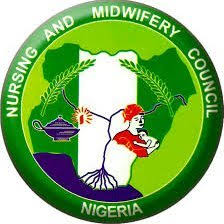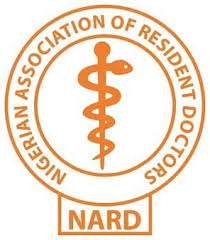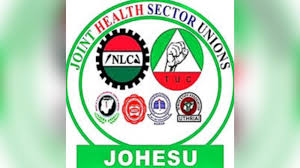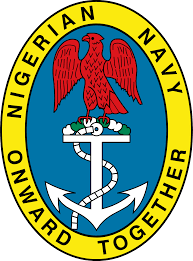PREAMBLE
The International conference on Global Health Security / the 55th Annual Scientific Conference and Annual General meeting of Association of Medical Laboratory Scientists of Nigeria (AMLSN) held between 2nd and 6th September. 2019 at the International Conference Centre. Abuja. The theme of the conference was: Global Health Security: the Medical Laboratory Agenda for sub-Saharan Africa. The conference was declared open by, His Excellency, Professor Yemi Osibanjo, GCON, SAN, Vice President of the Federal Republic of Nigeria, represented by the Honourable Minister of Health, Dr E. Osagie Ehanire on Tuesday 3rd September 2019.
In attendance were: Dr Kashef ljaz, Principal Deputy Director, Division of Global Health Protection, Centre for Disease Control and Prevention (CDC), Atlanta, Georgia, USA; Professor Eyitayo Lambo, former Minister of Health, Professor Oyewale Tomori, the Chairman, National Laboratory Technical Working Group (NLTWG); Sir Tosan Erhabor, the Registrar/CEO Medical Laboratory Science Council of Nigeria; Dr Rufus Ebegba, Director-General, the National Biosafety Development Agency (NBMA); Dr Dominic Abonyi the Registrar/CEO, Environmental Health Officers Registration Council of Nigeria (EHORECON) and Dr Chikwe Ihekweazu, the Director-General Nigeria Centre for Disease Control (NCDC), and other dignitaries; also in attendance were Medical Laboratory Scientists from the 36 states of the federation, the Federal Capital Territory (FCT) and from the diaspora.
.jpg)
After exhaustive deliberations on the thematic focus, the following resolutions were reached:
A. RESOLUTIONS OF THE INTERNATIONAL CONFERENCE ON GLOBAL HEALTH SECURITY:
1. GLOBAL HEALTH SECURITY AGENDA (GSHA)
1.1 Desirous of a world safe and secure from infectious disease threats; desirous of strengthening both the global capacity and nations' capacity to prevent, detect, and respond to human and animal infectious diseases threats, whether naturally occurring or accidentally or deliberately spread; convinced that Global Health Security (GHS) index of country is a reflection of the country's value for citizens' life, health infrastructure, health policies and the drive t implement them; mindful of the frequency and burden of disease outbreaks, notoriety of antimicrobial resistance an comatose status of human vaccine production laboratories, and the lack have scaled up maternal and child mortality and morbidity, especially in rural communities; seriously concern that at the moment, Nigeria is largely unsafe, taking into account the GHS determinants, the Conference urged the Federal Government of Nigeria to adopt the GHS initiative and take the concrete measures to provide adequate administrative and budgetary needs of Nigeria's health security drive. Further, to promote efficiency and sustainability of GHSA activities in Nigeria, the Conference urged the government to implement the following strategic objectives: a. Strategic Objective
1: Monitor and accelerate the activities and implementation of the Strategic Roadmap o National Medical Laboratory System Strengthening by 2020. b. Strategic Objective
2: Integrate and increase collaborative efforts with other relevant GHSA Action Package! including Antimicrobial Resistance, Zoonotic Diseases, Biosafety and Biosecurity, Surveillance, and Workforce Development;
c. Strategic Objective 3: Enhance local and national networking in facilitating resources sharing including experience. best practices, and resources.
1.2 Noting the fact that new technologies, new diseases, and microbial strains continue to drive the need for improve technology, the Conference urged the Federal Government to take all necessary measures to strengthen the Medici Laboratory System in Nigeria in order to promote health security of Nigerians. Further, Conference called fc development of a resilient framework of tiered medical laboratory networks and for the networks to be integrated with the three tiers of public health institutions and medical laboratory surveillance systems.
1.3 Furthermore, Conference called for the strengthening of medical laboratory system in the following priority areas:
- Support a sustainable national medical laboratory system.
- Create robust specimen referral networks to reach greater than 80% of the three tiers of the public health system.
- c Perform six approved pathogen testing methods.
- External Quality Assurance to strengthen medical laboratory testing and support accreditation.
- Accelerate National Medical Laboratory Leadership Program.
1.4 Noting also that the lack of ISO accreditation of most medical diagnostic laboratories in Nigeria is a big setback in implementation of GHSA; and recognizing that weak medical laboratories are as bad as no medical laboratories. Conference recommended the following priority steps for actions by government:
- Enhance the medical laboratory infrastructure and resources available to sustain an integrated national laboratory network.
- Implement National Accreditation Program for the national medical laboratory network with a focus on biosafety, biosecurity, and quality assurance.
- Develop a robust sample and specimen transportation system which ensures an effective cold chain.
- Adopt basic medical laboratory information sharing system among the relevant stakeholders.
1.5 DEPARTMENT OF MEDICAL IABORATORY SERVICES IN THE FMOH
Aware that the Federal Ministry of Health (FMoH) in 2007 initiated a National Medical Laboratory Services Policy (NNMLSP 2007; NNMLSP 2009 Revised); satisfied that the policy clearly provides for the establishment of a single Department of Medical Laboratory Service in the FMoH for the effective coordination and focused superintendence of medical laboratory services in the over 65 Federal Tertiary Hospitals and Public health laboratories nationwide; satisfied also that the policy was adopted by the National Council of Health and the Federal Executive Council; but, worried that the policy has since not been implemented; as a result the Medical Laboratory Services at the FMoH is still subsumed under the Department of Hospital Services; worried also that the current operational structure at FMoH obliterates medical laboratory services and contravenes statutory frameworks, regulations, scheme of service, policies and extant circulars, as well as undermines full-scale implantation of specified international standards requirements, International Organization for Standardization ISO 9001 and ISO 15189; the Conference urged the government to Immediately create a single department of Medical Laboratory Services in the Federal Ministry of Health. In addition, the Conference urged the government to implement extant Scheme of Service for Medical Laboratory Scientists as envisaged by the NNMLSP In order to strengthen planning and coordination of diagnostic, surveillance capacity and ensure the achievement of the goals and objectives of the national health system.
2. INSECURITY
2.1 The Conference expressed deep concern that the current situation of insecurity in Nigeria, which is characterized by armed banditry, communal clashes, and kidnappings, has worsened Nigeria's health indices In view of the continued living of people in internally displaced camps where acute shortage of water, sanitation and hygiene (WASH) essentials are impacting adversely on the health security of the indigent people.
2.2 Aware of the risk of catastrophic biological events that are magnified by continued global travels, urbanization, terrorist interest in weapons of mass destruction and rapid advances in technology; Aware, also that effectively highly contagious diseases can move across the world and across national boundaries with ease; and convinced that overcoming these challenges requires the collaborative efforts of government at all levels and development partners, Conference called for national partnership for Bio-risk Management, and partnership with all stakeholders, including policy makers and law enforcement agents, in order to strengthen and Implement strategies that cut across national boundaries to ensure Biosafety and Biosecurity, onshore and offshore
2.3 Convinced that GI-ISA must be guided by health indicators of countries and regions in view of peculiarities in causes, sources and patterns of health threats to man, animal and environment, Conference emphasized that the GHSA must have local and regional expression, impression and implications.
3. WORKFORCE
3.1 Recognizing that human capacity development is key to articulating and implementing any health security agenda; further recognizing that the strength of a country's health system is a reflection of the strength of the country's human resources for health, Conference recommends improved medical laboratory science training and the employment of more medical laboratory scientists in both federal and state tertiary health institutions so as to bridge the manpower deficit. Furthermore, Conference noted that in most tertiary hospitals, the medical laboratory scientist-doctor-patient ratio has become so distorted such that professionals are frequently overwhelmed by work load, and that situation can occasion misdiagnosis and poor quality care service delivery.
3.2 The Conference noted with dissatisfaction that the lack of inter-professional harmony amongst health professionals, especially in sub-Saharan African is a threat to the global match towards achieving GHSA. Conference, with emphasis on Nigeria, cautioned that the situation has contributed to the abysmal rating of the country's health indices in global health ranking. Conference therefore called for respect of professional charters and delineations in the multi-professional team play.
4. HIV/AIDS, CHILD AND MATERNAL MORTALITY
4.1 To tackle the threats posed by HIV/AIDS, Child and Maternal Mortality, emerging and re-emerging diseases and neglected tropical diseases, Conference called on policy makers to ensure implementation of Resilient and Sustainable System for Health (RSSH) across board with a view to building health systems that are holistic, robust, country-owned and maintained.
5. RESOLUTIONS OF THE ANNUAL GENERAL MEETING AGM
1. PROFESSIONAL MALEVOLENCY
1.1 Convinced that MLS In Nigeria derive authority to deliver services to the healthcare seeking members of the public from the Second schedule, Paragraph 49, and Sections 169-170 of the 1999 constitution of the Federal Republic of Nigeria (as amended); convinced of the fact that since 1972, the Federal Government gave administrative role of Medical (clinical) laboratories to Medical Laboratory Scientists (MIS); convinced also that several circulars of government up to 2003 also gave that responsibility to medical laboratory scientists (MLS); appreciating the fact that AMLSN have over 16 court judgments across teaching hospitals and federal medical centres in Nigeria in its favour, AMLSN is highly concerned over the continuing crises of malevolency against MLS working in the health sector in Nigeria. AMLSN is worried, right now, particularly of the continuing victimization of MIS in the UCTH, LOTH, OOUTH, Rua Specialist Teaching Hospital, LSHMI3, and the FMC Gombe; the Meeting therefore reaffirms the position that MLS are indispensable in the healthcare sector in Nigeria. and are cognate members of the world health team, who have the requisite academic and medical science education to practice. The meeting therefore calls on the management of all affected health institutions to correct anomalies and initiate reconciliation policy to end the crises forthwith.
1.2 Furthermore, the meeting appealed to the new Minister of Health, Or. Osagie Ehanire to call to order the CMOs and MD of tertiary hospitals under his superintendence. AMLSN calls on the Honourable Minister of Health to evolve processes that will end the continuous victimization of Medical Laboratory Scientists serving in all federal and state tertiary hospitals in Nigeria. AMLSN is concerned about the grave consequences of this untoward situations on our health sector because at the receiving end are the patients who come to receive care.
1.3 The meeting repeated the fervent appeal to President Muhammadu Buhari, GCFR. the father of the new Nigeria, to intervene and permanently end the malevolency meted on MIS in all our health institutions in Nigeria.
1.4 Highly dissatisfied of the constant appointment and manner of appointment of members of one particular group of health professionals only to the post of Minister of Health; Convinced that the manner of the appointment is at all times disproportionate; buttressing that the health sector is multi-disciplinary; and convinced that the appointments further fuel the crises in the health sector; the Meeting recommended that only professionals with proven leadership skills and management competence should head and manage health institutions regardless of their related health professional background; the meeting further noted that the unhealthy rivalry is traceable to the biased and poor leadership skills of heads of health institutions. The meeting therefore repeated the fervent appeal to the President of the Federal Republic of Nigeria to consider all health professions when appointing ministers of health.
5. QUACKERY AND PROMOTION OF FRAUDULENT MEDICAL PRACTICE
5.1 The meeting, expressed strong concern at the proliferation of quackery and promotion of fraudulent medical laboratory practice among charlatans in the health sector; the meeting noted with dismay that for pecuniary gain, quacks fool patients, and unnecessarily afflict and sometimes kill vulnerable patients. The meeting therefore called for stricter enforcement of extant legislations by the Medical Laboratory Science Council of Nigeria to fully wedge the trend.
6. YELLOW FEVER OUTBREAK
6.1 As a result of the recent suspected outbreak of Yellow Fever in Bauchi State, as well as other parts of the country, AMLSN urged the Federal Government, the Federal Ministry of Health and the Nigeria Centre for Disease Control to intensify epidemiological efforts with a view reducing the risk and occurrence of negative health outcomes to communities around the states and the country in general.
CONCLUSION/APPRECIATION
The S5th Annual Scientific conference of the Association of Medical Laboratory Scientists of Nigeria, which is an international conference, is one of the most attended in recent times. It is an open endorsement of the pragmatic and all-engaging leadership posture of the AMLSN National President, Dr Bassey Enya Bassey by members who came from all over to attend the conference. We appreciate the Federal Government, the Federal Capital Territory Administration, Nigeria Centre for Disease Control, all our invited guests, who are too numerous to mention, and every other person whose involvement, directly or indirectly, led to the success of the conference. We equally appreciate AMLSN FCT branch for making us proud by successfully hosting this conference.
Ifeanyichukwu Casmir lfeanyi Cajetan, Ph.D, MLS (MLSCN)
National Publicity Secretary.
For: Association of Medical Laboratory Scientists of Nigeria (AMLSN)





